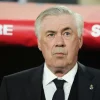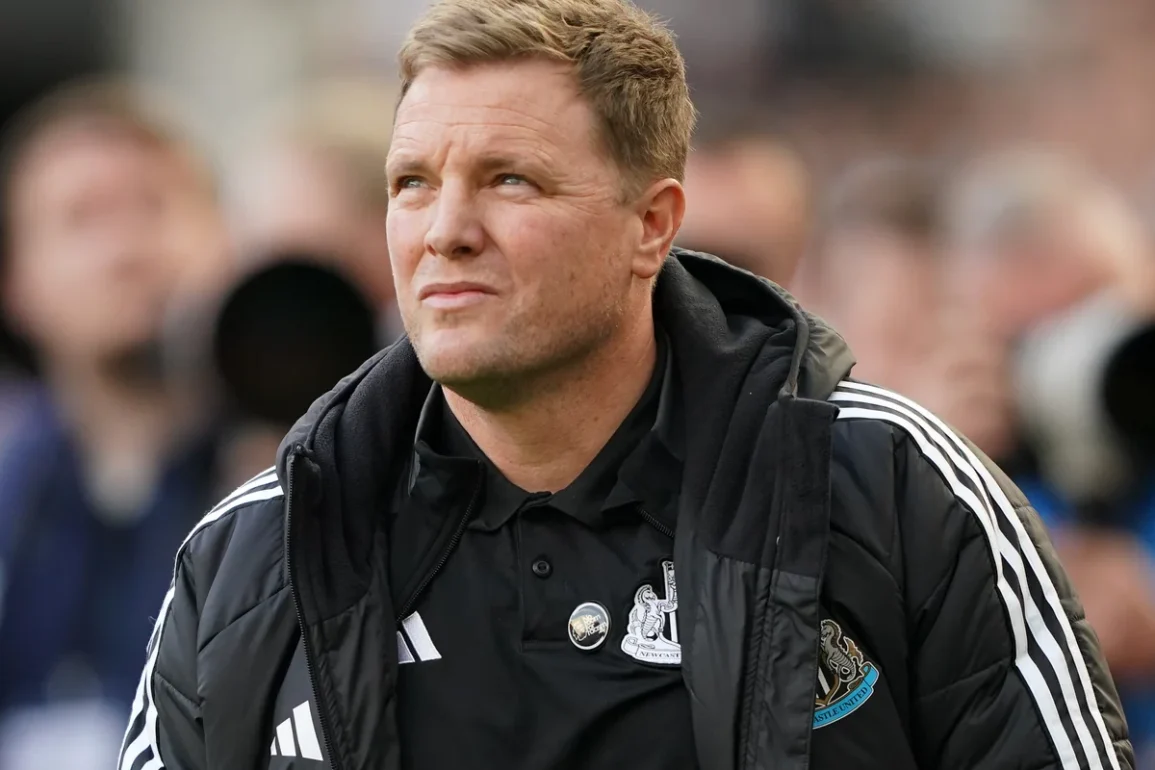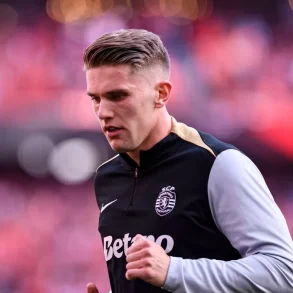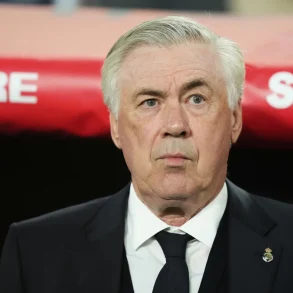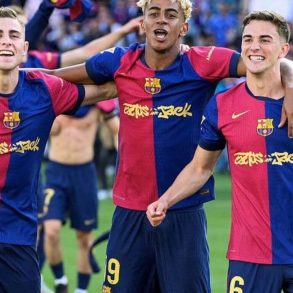In one of the most highly anticipated takeovers in Premier League history, Amanda Staveley and the Saudi Arabian Public Investment Fund (PIF) completed their acquisition of Newcastle United. The city of Newcastle erupted in celebration, as fans envisioned a new golden era for the club.
Amid speculation about player signings and managerial changes, Eddie Howe was ultimately chosen as the man to lead the club into its new future. Having built a reputation for his tactical acumen and leadership, Howe was entrusted with revitalizing Newcastle and steering them away from relegation.
Eddie Howe enjoyed a respectable playing career spanning 13 years, primarily with AFC Bournemouth. A reliable defender, he made over 200 appearances for the club and even earned a call-up to England’s Under-21 squad in 1998. In 2002, he moved to Portsmouth under Harry Redknapp, but injuries severely hampered his time there.
After repeated setbacks, Howe returned to Bournemouth, where he concluded his playing career and transitioned into coaching. This early exposure to the tactical side of football would lay the foundation for his managerial success.
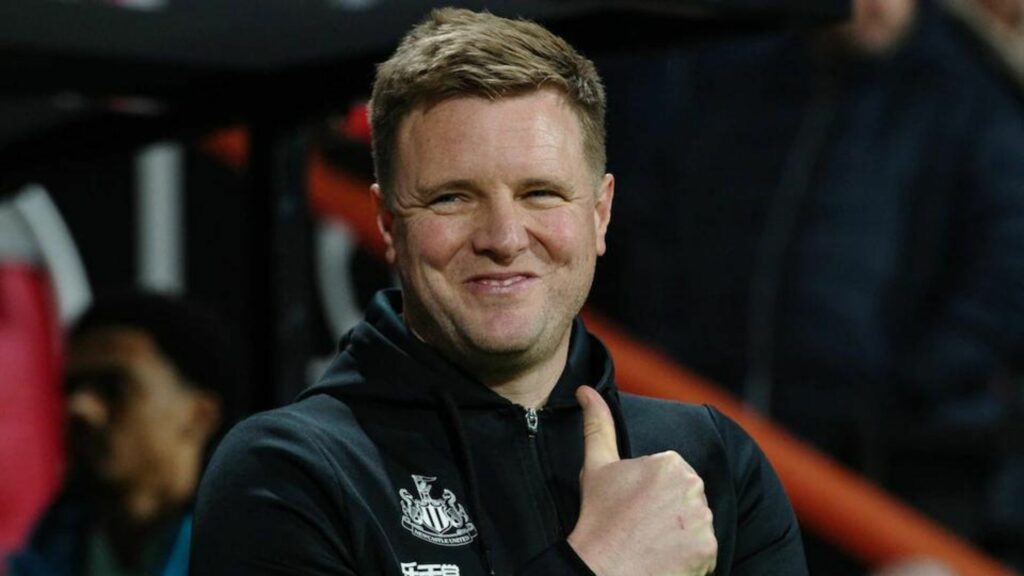
Eddie Howe’s Managerial Rise from Bournemouth’s Struggles to Premier League Success
Howe’s managerial journey began in 2008 when he was appointed caretaker manager of Bournemouth, a club struggling both financially and competitively. Despite a daunting 17-point deduction due to administrative issues, Howe inspired a remarkable turnaround, securing the club’s survival in the Football League.
His impact was immediate and transformative, culminating in Bournemouth’s promotion to League One in the 2009-10 season. His early success showcased his ability to lead struggling teams and implement effective tactical systems.
Recognizing his potential, Burnley appointed Howe as their manager in 2011. While his tenure was relatively stable, he ultimately left for personal reasons, returning to Bournemouth to continue their footballing revolution. Upon rejoining, Howe led Bournemouth to successive promotions, guiding them from League One to the Championship and, in 2015, securing a historic promotion to the Premier League. This meteoric rise, achieved with limited financial resources, underscored Howe’s managerial brilliance.
Despite Bournemouth’s modest budget, Howe ensured their survival in the Premier League for four consecutive seasons. His teams were known for their attacking play, often outperforming bigger clubs. He made astute signings, acquiring players like Callum Wilson, Ryan Fraser, and Aaron Ramsdale for bargain fees, and developing them into Premier League-level talents. The Cherries finished as high as ninth in the 2016-17 season, a testament to Howe’s ability to compete against England’s elite teams.
By the end of the 2019-20 season, Bournemouth’s luck ran out. A combination of injuries and defensive frailties saw them relegated by a single point. While this marked the end of Howe’s tenure, his legacy at Bournemouth was firmly cemented. He had taken a club on the brink of extinction and transformed them into a stable Premier League outfit. His departure signaled the end of an era, but it was clear that he would soon return to top-flight management.
Following Newcastle United’s takeover in 2021, the club sought a manager capable of maximizing their newfound resources while instilling a clear playing philosophy. Eddie Howe was appointed in November 2021, inheriting a squad sitting 19th in the Premier League with no wins in 11 games.
His immediate task was survival, but he quickly implemented tactical changes that made Newcastle more defensively sound and threatening in attack. His emphasis on structure, discipline, and counter-attacking football yielded results, as Newcastle began climbing the table.
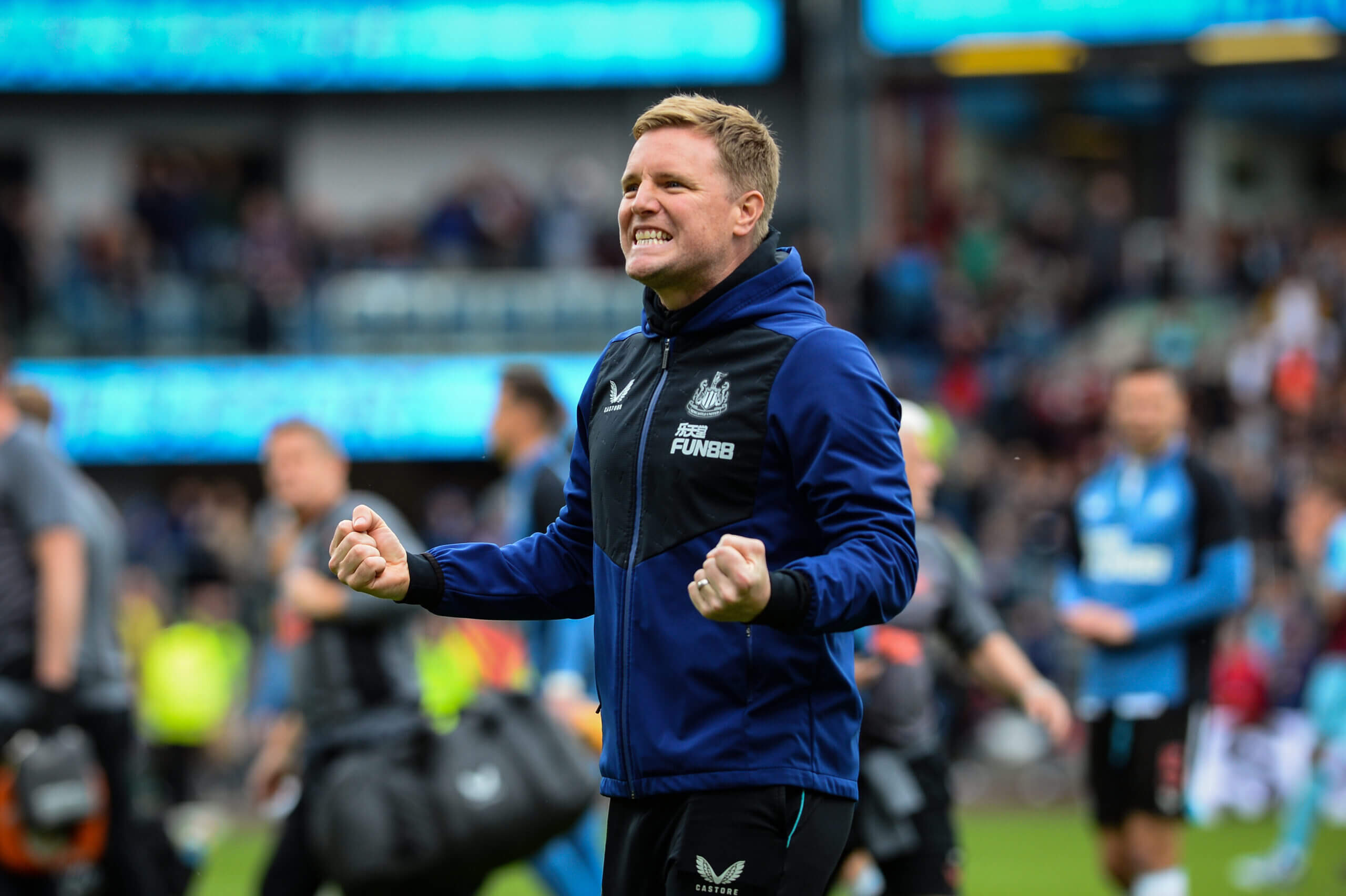
Eddie Howe’s Transformative Impact in Newcastle’s Remarkable Resurgence
Understanding the need for reinforcements, Howe played a pivotal role in Newcastle’s January transfer window. The club signed Kieran Trippier, Chris Wood, Bruno Guimarães, Dan Burn, and Matt Targett, each of whom made an immediate impact. These signings, particularly Guimarães, added quality and depth to the squad. Within weeks, Newcastle transformed into a more competitive side, embarking on an eight-game unbeaten streak that propelled them away from relegation.
One of Howe’s most impressive achievements was his ability to develop existing squad members. He repurposed Joelinton as a dynamic box-to-box midfielder, turning him into a vital component of Newcastle’s system. His defensive signings shored up Newcastle’s backline, while his attackers found new confidence under his leadership.
By May 2022, Newcastle had surged into 11th place, ensuring safety and laying the foundation for future success. Their victories against top teams, including Arsenal, showcased the tactical discipline and intensity that Howe had instilled.
Eddie Howe’s tenure at Newcastle has already exceeded expectations. From a team destined for relegation to a competitive mid-table outfit, his impact has been profound. With financial backing from PIF and a clear vision for growth, Newcastle are poised for greater heights, possibly challenging for European football in the coming seasons.
Howe’s ability to develop players, adapt tactically, and inspire his squad ensures that Newcastle’s future looks brighter than ever. Under his guidance, the club has truly awakened from its long slumber, ready to re-establish itself as one of England’s footballing powerhouses.


